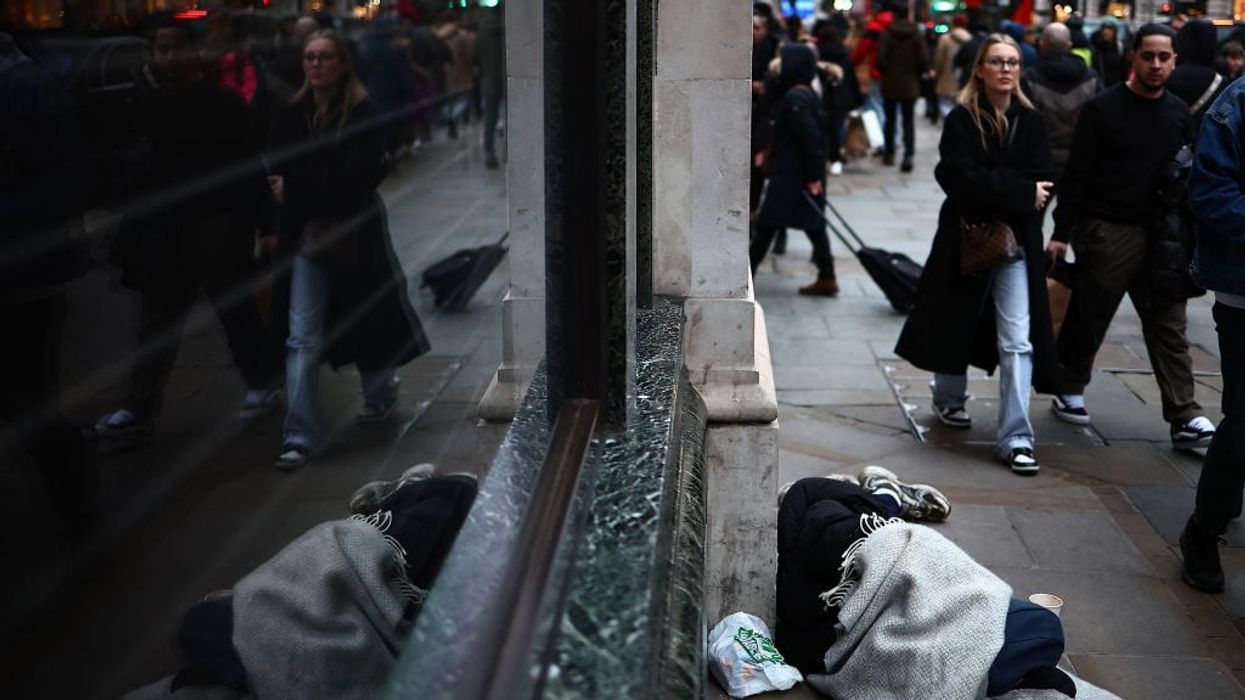MANY British Asian families are badly affected as poverty has increased in the UK to around pre-pandemic levels, a new report said.
The UK poverty 2024 report by Joseph Rowntree Foundation published last Tuesday (23) said Asian households also have higher rates of child poverty, very deep poverty and persistent poverty.
According to the report, around half of people in Pakistani (51 per cent) and Bangladeshi households (53 per cent) and around four in 10 people in households headed by someone from an Asian background (39 per cent), excluding Indian, Pakistani, Bangladeshi or Chinese, were in poverty between 2019 and 2020 and 2021 and 2022.
Many households from black African backgrounds (42 per cent) were also in poverty during the period. Current levels of poverty are around 50 per cent higher than they were in the 1970s, the report warned.
The analysis revealed that more than one in five people in the UK (22 per cent) or 14.4 million people, with 8.1 million working-age adults, 4.2 million children and 2.1 million pensioners, were in poverty in 2021-2022.
Paul Kissack, group chief executive of the Joseph Rowntree Foundation, said, “Little wonder that the visceral signs of hardship and destitution are all around us – from rocketing use of foodbanks to growing numbers of homeless families.
“This is social failure at scale. It is a story of both moral and fiscal irresponsibility – an affront to the dignity of those living in hardship, while driving up pressures on public services like the NHS.”
Data also showed the average person in poverty has an income 29 per cent below the poverty line, with the gap up from 23 per cent in the mid-1990s. The average income of people in very deep poverty is 59 per cent below the poverty line.
In 2021-2022, 43 per cent of children from families with three or more children experienced poverty. Similarly, among lone-parent families, the poverty rate for children was 44 per cent during the same period.
The poverty rate for disabled individuals reached 31 per cent. However, for those with a long-term, limiting mental health condition, this figure rose higher, to 38 per cent.
Working-age adults in workless households faced a significant poverty rate, with more than half (56 per cent) experiencing poverty in 2021-2022. In contrast, only 15 per cent of working households had adults in poverty during the same period.
The report further said around 3.8 million people, including one million children, experienced destitution, where they could not afford the most basic physical needs to stay warm, dry, clean and fed, in 2022. These figures have more than doubled since 2017.
Kissack said, “One way politicians can take action in the next parliament is to enshrine in law a guarantee that people will always be able to afford the essentials, such as food and household bills, through our benefits system."
In the period from 2019-2020 and 2021-2022, the average poverty rates in England, Wales, and Scotland aligned, each standing at approximately 22 per cent. However, Northern Ireland exhibited notably lower poverty rates at 16 per cent.
During the same time, the West Midlands recorded the highest poverty rate at 27 per cent. Following closely were the north east and London, both with rates of 25 per cent. Additionally, Yorkshire and The Humber, the East Midlands, and the North West all had poverty rates of 23 per cent.
"These differences stem from variations in labour and housing markets, benefit receipt rates, and broader demographic factors in each region. Larger cities, especially London, are significantly influenced by a greater dependence on renting and higher housing costs, while post-industrial and coastal areas, including the West Midlands and the North East of England, are driven by lower employment rates, fewer opportunities, and a concentration of lower-paid roles," the report noted.
Child poverty rates in Scotland (24 per cent) remained much lower than those in England (31 per cent) and Wales (28 per cent) and are around similar in Northern Ireland (22 per cent).
In the wake of the report, the foundation called for the implementation of an 'Essentials Guarantee' within Universal Credit to ensure everyone receives a minimum level of support for necessities such as food and household bills is crucial.
"Additionally, upcoming governments should prioritise extending economic security to all members of society. Individuals facing poverty, particularly severe poverty, should seek assurances from political parties regarding plans that prevent them from being left vulnerable during challenging times," it said.
Martin Lewis, founder of MoneySavingExpert.com and The Money & Mental Health Policy Institute charity, said, "Definitions of poverty are tricky, especially when based on relative incomes, but that smells like a clear indication the problem is getting worse. It's policy makers and regulators to sit up take note and address these deep rooted problems – which is exactly what I hope they do with this report highlighting the situation and calling for change.”





